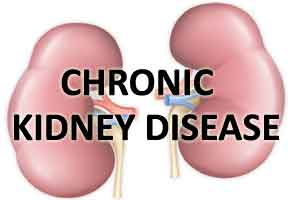- Home
- Editorial
- News
- Practice Guidelines
- Anesthesiology Guidelines
- Cancer Guidelines
- Cardiac Sciences Guidelines
- Critical Care Guidelines
- Dentistry Guidelines
- Dermatology Guidelines
- Diabetes and Endo Guidelines
- Diagnostics Guidelines
- ENT Guidelines
- Featured Practice Guidelines
- Gastroenterology Guidelines
- Geriatrics Guidelines
- Medicine Guidelines
- Nephrology Guidelines
- Neurosciences Guidelines
- Obs and Gynae Guidelines
- Ophthalmology Guidelines
- Orthopaedics Guidelines
- Paediatrics Guidelines
- Psychiatry Guidelines
- Pulmonology Guidelines
- Radiology Guidelines
- Surgery Guidelines
- Urology Guidelines
Dietary salt restriction benefits patients with CKD

Dietary sodium restriction in patients with CKD stage 1–4 was found effective in improving clinic and ambulatory systolic and diastolic BP along with proteinuria/albuminuria, according to a new meta-analysis published in the journal Nutrients. This meta-analysis showed that a moderate dietary sodium restriction from 179 to 104 mEq/day significantly decreased systolic/diastolic BP measured as a clinic and ambulatory BP, by 5/2 mmHg and 6/3 mmHg, respectively.
Carlo Garofalo and his associates designed a systematic review and meta-analysis of RCTs assessing the efficacy of salt restriction on BP and albuminuria in CKD.
Researchers conducted a meta-analysis through a literature search on PubMed and Web of Science databases and identified 11 randomized controlled trials. These studies evaluated the effect of low vs high salt intake in individuals with CKD (stage 1-4) who did not undergo dialysis or kidney transplantation.
A moderate restriction in dietary sodium from 179 to 104 mEq/day was found to significantly lower systolic/diastolic BP; 4.9/2.3 mmHg reduction in clinic systolic/diastolic BP and 5.9/3.0 mmHg reduction in ambulatory systolic/diastolic BP. Mean differences in proteinuria and albuminuria were −0.39 g/day and −0.05 g/day, respectively.
The study concluded that the meta-analysis of RCTs suggests that moderate dietary salt restriction significantly reduces blood pressure and proteinuria, proportionally to BP decline, in patients with early and late CKD with few adverse effects.
The authors said that the main limitation to the beneficial effects of effective salt restriction is the long-term sustainability; hence, further research is needed to optimize adherence to salt restriction over the long-term. They added that further long-term RCTs are warranted to determine the effects of salt restriction on CKD progression and cardiovascular outcomes.
10% of the population worldwide is affected by chronic kidney disease (CKD), and millions die each year because they do not have access to affordable treatment. It is estimated that the number of cases of kidney failure will increase disproportionately in developing countries, such as China and India, where the number of elderly people is increasing.
For more reference log on to https://doi.org/10.3390/nu10060732

Disclaimer: This site is primarily intended for healthcare professionals. Any content/information on this website does not replace the advice of medical and/or health professionals and should not be construed as medical/diagnostic advice/endorsement or prescription. Use of this site is subject to our terms of use, privacy policy, advertisement policy. © 2020 Minerva Medical Treatment Pvt Ltd